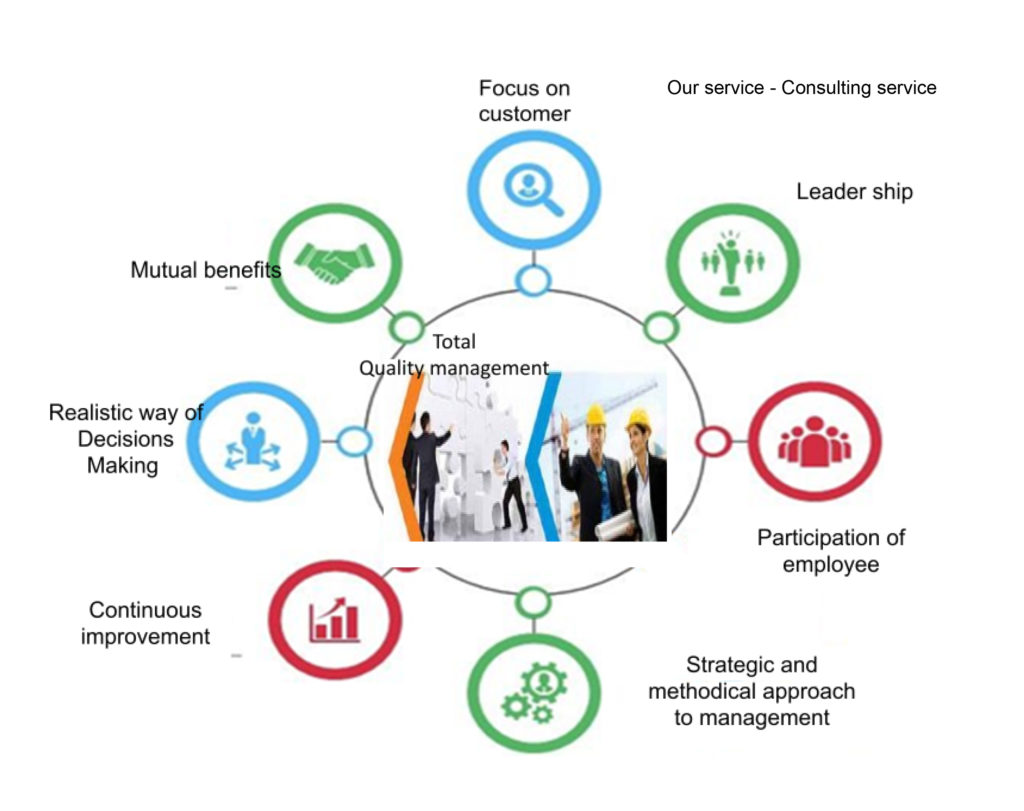Total Quality Management
The Meaning of Total Quality Management
Total Quality Management means that the culture of the organization is defined by supporting the achievement of continuous customer satisfaction through an integrated system, tools, and training techniques
This involves continuous improvement of the organization’s operations, which leads to a high-quality product or service.
- Total Quality Management means that the culture of the organization is defined by supporting the achievement of continuous customer satisfaction through an integrated system, tools, and training techniques
This involves continuous improvement of the organization’s operations, which leads to a high-quality product or service.
The objectives of total quality management
- Doing the right thing right the first time and every time
- Total Quality Management is each manager who leads and facilitates the shareholders
- Total customer satisfaction through quality product and service
- Continuous improvement of processes، systems, people, suppliers, partners, product or service
- Total Quality Management and Continuous Improvement
- Total Quality Management is the management process used to make continuous improvements to all functions
- Total Quality Management represents a permanent and continuous commitment to improvement
- The basis of total quality management is the management philosophy that supports customer requirements through continuous improvement
Benefits of Total Quality Management
- Financial benefits include lower cost, higher returns on sales, and investment
- Ability to charge higher than competitive rates
- Global market participation, higher levels of customer retention,
- Less time is required for development, innovation, and new uses as a quality company
- Striving to satisfy customers with quality and performance that will meet or exceed customer expectations
- It makes the company more fortunate
- Increasing the effectiveness of the work team
- It makes the company more sensitive to customer needs
- It makes the company adapt more easily to change
• Benefits for the company
- Quality improvement
- Increases productivity
- A more stimulating style
- Cost Reduction
• Elements of success
- Management support
- Vision
- Proper planning
- Customers and focus on the bottom line
- Empowerment
- Teamwork / Effective Meeting
- Improving Contiguous Processes
- Resource Allocations
- Measurement


Lost of Capital

Lost of Customer

Increase Cost

Loss of Reputation

Low Productivity



